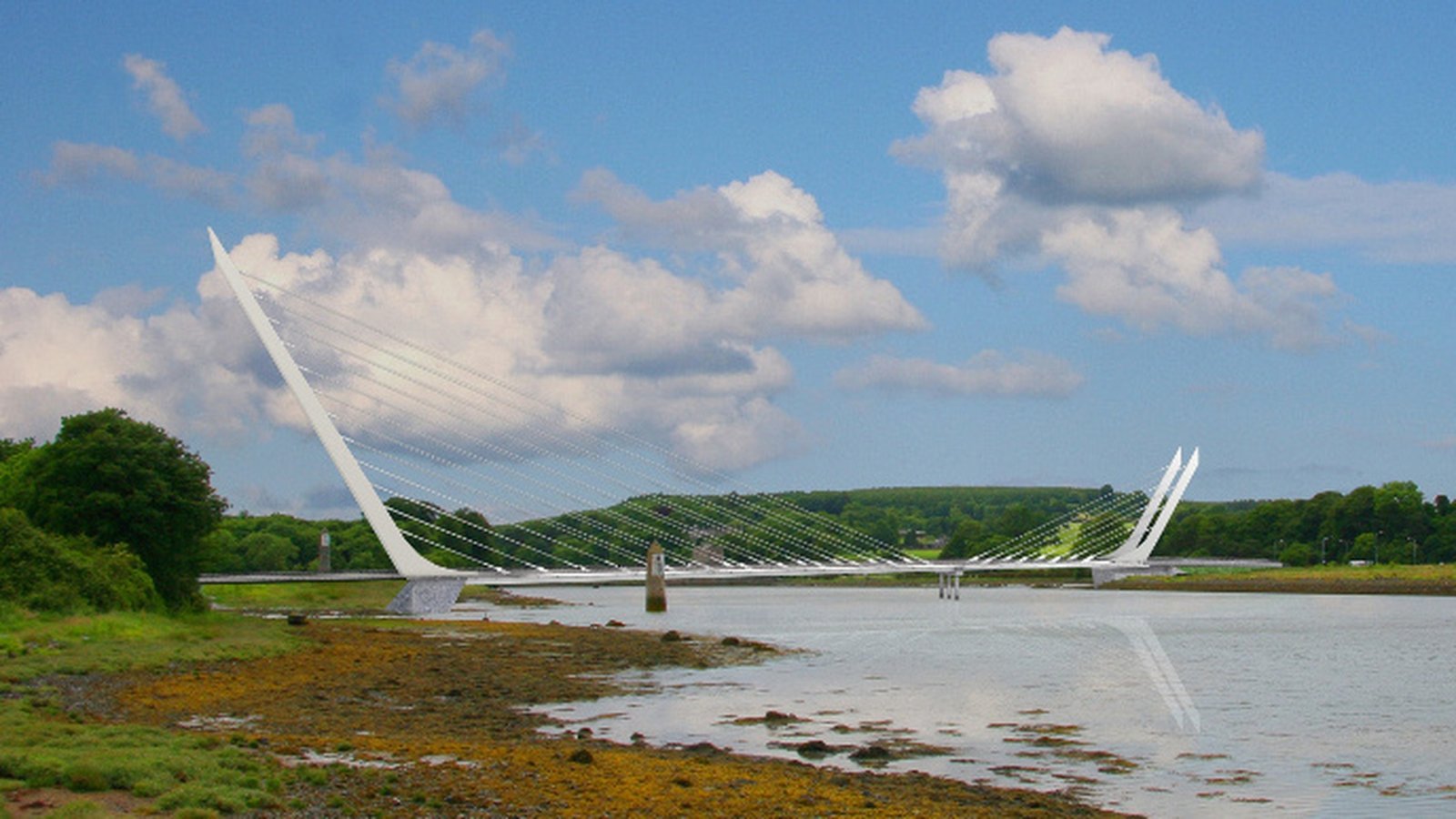Asylum seeker housing system ‘collapsed’
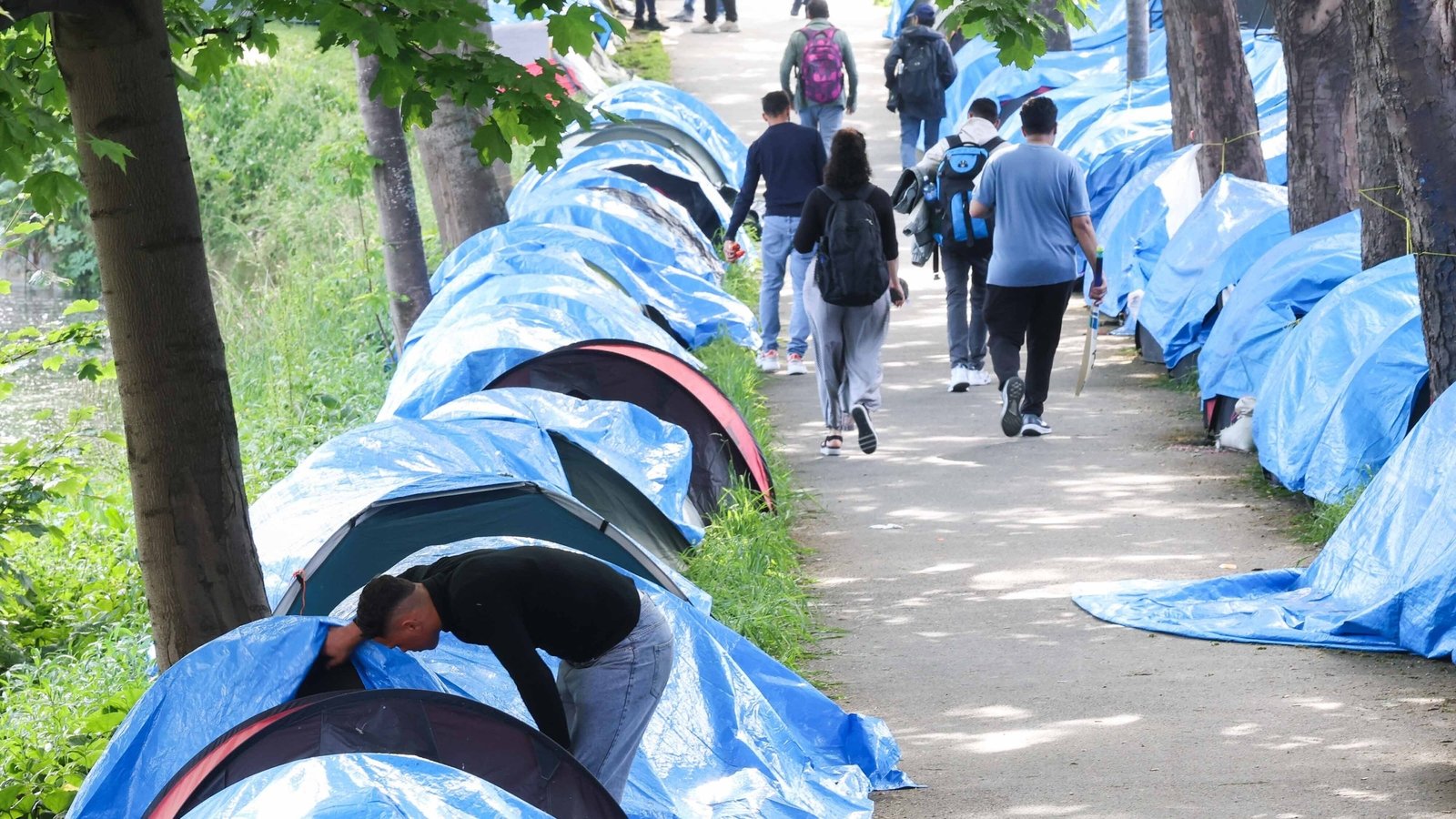
People in Ireland would not have tolerated a situation where significant numbers of people had to live on the streets until a few months ago, “when when the IPAS project and our entire system for dealing with asylum seekers collapsed,” Focus Ireland said.
The homeless charity’s Director of Policy and Advocacy Mike Allen warned that Ireland was now in an entirely different situation than it had been before.
“We’re at a crossroads in the way in which we tolerate injustice in this country,” he told a conference in Dublin.
“We want to live in a society which will not tolerate a situation where people have to live on the streets and we’re moving potentially to a situation where we’re saying we will not tolerate the people who live on the street.”
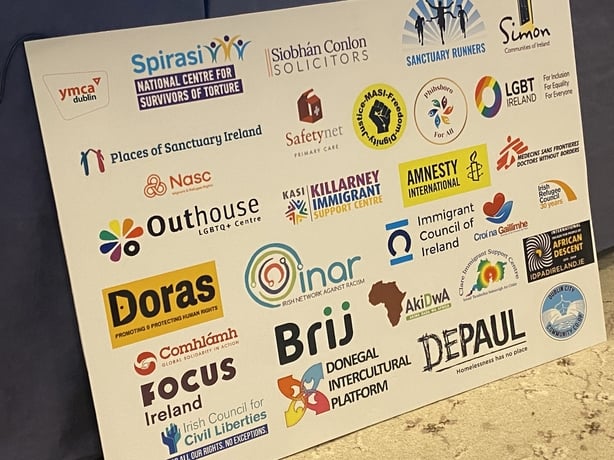
He said that the failure of the International Protection Accommodation Service (IPAS) to provide accommodation to people seeking asylum goes to the very heart of any moral capacity to oppose homelessness.
Mr Allen added that for all the failures in homelessness in Ireland, the county had been relatively good at dealing with rough sleeping.
He said the problem of asylum seekers being left without accommodation was not NGOs handing out tents, but the Government’s failure to provide safe accommodation.
Focus Ireland is one of the signatories of a letter expressing deep concern for the 14,000 people without a home in Ireland as well as for the almost 2,000 International Protection Applicants who are currently without accommodation and are having to also rely on stretched services for the homeless.
Dr Angy Skuse who is medical director with Safety Net, a charity that provides GP care to homeless people, said the mental health impacts among those being left unaccommodated were the biggest factor.
“We see an awful lot of psychological distress. People with nightmares, not able to eat, not able to sleep, crying all the time, worrying about their families back home.”
Dr Skuse said others had expressed suicidal ideation and “that comes from hopelessness.”
“When they come here, they’ve made a long and arduous journey to get here, they arrive at last and they think they’re going to be safe and then they’re not safe,” she said.
“Until they’re given a place to live, they don’t feel safe and so the longer they go without any kind of accommodation, the higher the likelihood that something bad will happen.”
Dr Skuse said she had also seen people with high blood pressure or hypertension going undiagnosed and untreated which has led to people becoming hospitalised or on kidney dialysis.
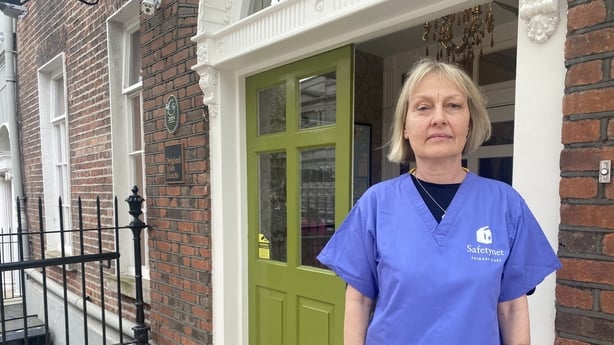
“Neither of those people would be in that state if they had been able to look after their blood pressure,” she explained.
Dr Skuse added homelessness can lead to inadequate access to hygiene facilities, worsening back pain from having to sleep on the ground, having no address for follow up health care, being unable to keep mobile phones charged, an improper diet for those with diabetes and the inability to properly store medicines.
In one case, a search had to be mounted for a seriously ill patient after tests showed they needed immediate hospitalisation.
Nick Henderson from the Irish Refugee Council said that the Government’s failure to deal with the housing crisis had created a vacuum.
“Into that vacuum can fall misinformation and a perception that the consequence or the reason for this crisis is the other, migrants or International Protection Applicants,” Mr Henderson said.
He added that he believed many people across Ireland knew that was not the case but Mr Henderson said, at the very least, there had been a “carelessness” in Government language in terms of dealing with this.
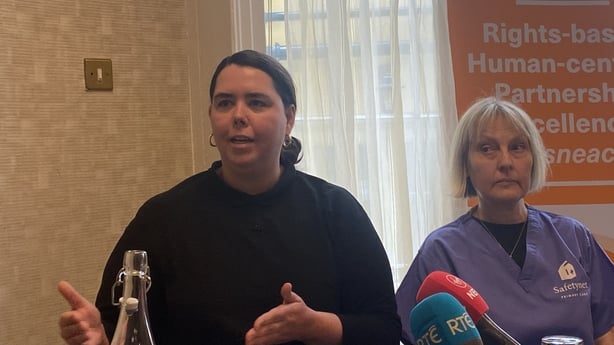
He said new announcements and policies around Ukrainian welfare and accommodation being reduced, the safe country list being expanded and means testing for international protection applicants had consequences.
“They have to be aware of the consequences of their language. Don’t punch down, don’t punch at all, show leadership on this issue and communicate clearly using facts,” he said.
Mr Allen said that said that the fact that migration is coming up as an issue on the doorsteps in the local elections is worrying because it is not the responsibility of councillors or local authorities.
He added that the suggestion that charities are not going to be recompensed for providing tents to asylum seekers was not the answer and would not deal with the issue.
The conference also heard that those sleeping in tents close to the Grand Canal in Dublin are being regularly targeted by groups of people, including a group that cycled by last night throwing potatoes and racial slurs, according to volunteers working with the men.
Olivia Headon told the press conference that there had also been instances of people urinating on tents and the intense trolling of the men by people coming to target them.
“The State has an obligation to provide safety or safe accommodation for these people but they’re not keeping them safe at all,” she said.
She said a number of the incidents had been reported to gardaí who had responded, depending on the severity of the situation.
‘Human rights begin at home’
The director of the Irish Council for Civil Liberties, which is also a signatory to today’s letter, said that “human rights begin at home” and are centred on the inherent dignity of every person.
Liam Herrick said: “We have spoken in recent years in Ireland about having a constitutional right to housing but regardless of where we stand on that question, there is no doubt that homelessness and the denial of basic rights to accommodation and housing present a wide range of human rights violations.
“It infringes on the right to human dignity and the right to bodily integrity of the person on the right to freedom from inhuman and degrading treatment, on the right to respect for private and family life, all rights protected under the Constitution and the European Convention of Human Rights and the EU’s Charter of Fundamental Rights.”
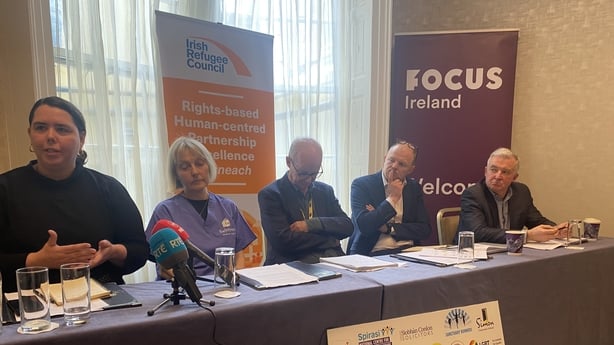
Mr Herrick added there was specific legislation at the Irish and European level which directly addressed the question of the rights that are enjoyed by people seeking international protection.
He said the High Court was hearing novel legal proceedings around this issue today.
It needs to be remembered, Mr Herrick said, that Ireland is one of the two richest countries in the world, on many measurements with three quarters of the world’s refugees being in poor and middle-income countries.
“Turkey alone, for example, is housing almost 4 million refugees. So, I think we need to understand the severity and the seriousness of the human rights violation that this wealthy country has found itself in,” he said.
He claimed the Government’s main failures were in planning and its administrative response.
‘Beaten and threatened’
The conference also heard of the experience of “Abdi”, a Somalian asylum-seeker who said he had had a difficult three-month journey to get to Ireland.
During the journey he said he was beaten and threatened by smugglers, spent three months without accommodation in Ireland and was told to go to homeless charity for a sleeping bag, shower and food.
“Abdi” said when he slept in some places, stones were thrown at him and he worried about his bags being stolen.
He was given accommodation in Dundrum for just three days during the cold weather.
“I was homeless for three months. The €113 was not enough to live off every week. You can eat only once per day. If you buy more than that, the money will not last.”
He added: “Someone who hasn’t accommodation is someone who hasn’t a life.”
He said he now has accommodation and when he got the email from IPAS it gave him “hope”.
“I’m delighted to stay in Ireland. I think my future will be here. I feel safe here. I want to continue my education here.”
Whilst he has found people welcoming, he said it is a very difficult life for someone arriving in Ireland now.

